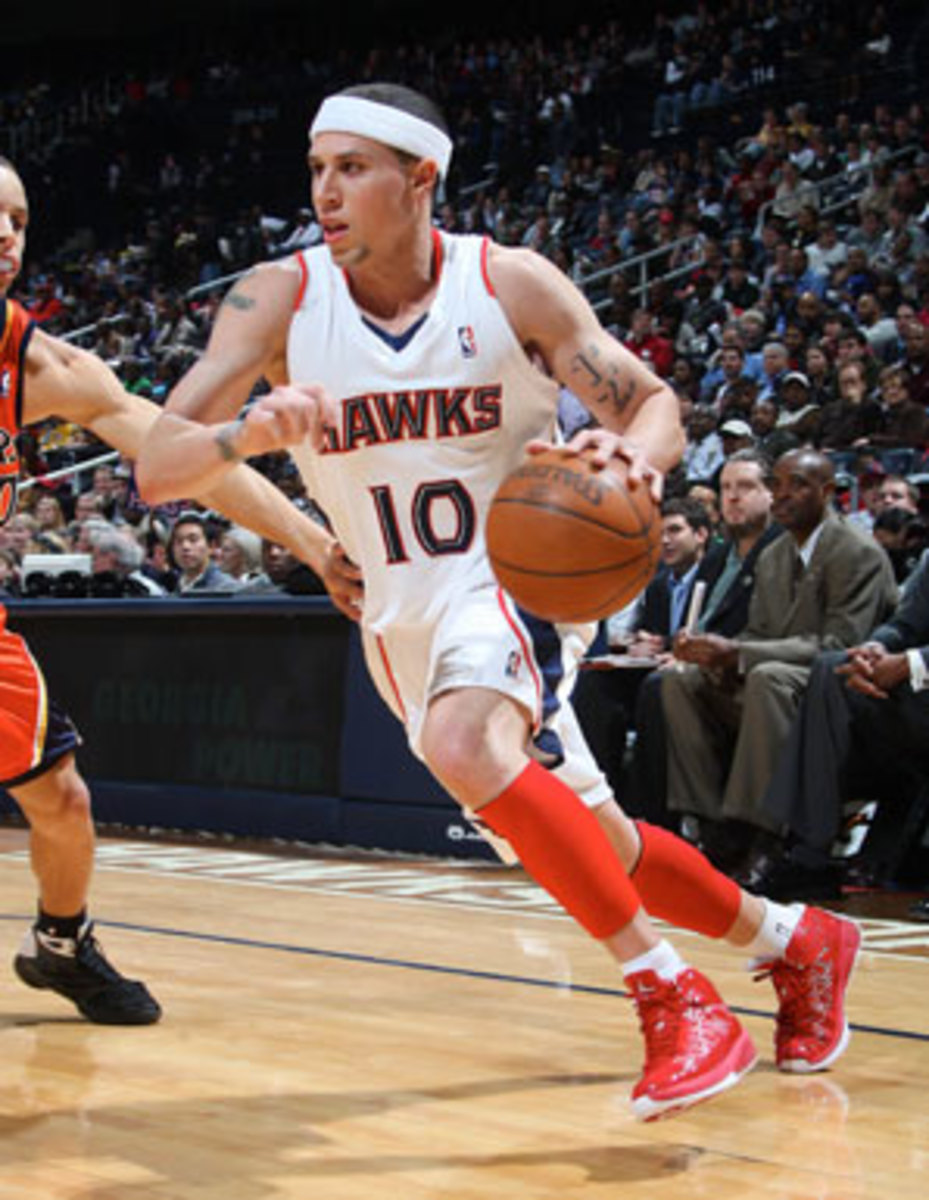Bibby holds key to Hawks' success


The Atlanta Hawks most important player is Mike Bibby.
What, you disagree?
That's not a slight toward Joe Johnson. It's not a knock on Josh Smith or an indictment of Al Horford. Those are better players. Bibby is just more important.
"Nobody on the bench can do what Bibby does," said an Eastern Conference scout. "When he's not on the floor, they lose a lot."
Consider the evidence: Prior to Bibby's arrival before the 2008 trade deadline, Atlanta was a hodgepodge of talent, a rudderless ship that played with little direction. Enter Bibby, a heady point guard who had steered the Sacramento Kings to the conference finals in his first season with the team. With Bibby at the helm, the Hawks made the postseason for the first time in nine years -- an appearance that ended after an epic seven-game series with Boston -- and last season he guided them to 47 wins and a trip to the conference semifinals.
Recognizing Bibby's value, the Hawks rewarded the 31-year-old with a three-year, $18-million contract extension last July. And the investment has paid off: Through Wednesday, the Hawks (43-24) were tied for third in the Eastern Conference with the NBA's seventh-best offense (102.4 points per game). Bibby has scored in double-figures 32 times this season and ranks fifth in the league with a 3.48 assist-to-turnover ratio, a career-high for him.
Johnson calls Bibby his best backcourt mate not named two-time MVP SteveNash, and Jason Collins compares Bibby's on-court leadership to Dallas All-Star Jason Kidd.
"When [Bibby's] out, we notice the difference," said Collins. "He gets the team organized, whether it's running plays, running sets, making sure the ball moves. Sometimes the ball can stick and our motion isn't good. He has that intensity when the game is on the line when something needs to be said. He's not afraid to speak his mind and hold teammates accountable."
Bibby's play will likely dictate how far the Hawks advance this postseason. But to stay on the floor, he will need to bring the D -- his glaring weakness. Never an agile defender, Bibby has slowed considerably over the last few seasons, to the point where, at times, he has become a liability. Against Cleveland in the 2009 semifinals, Mo Williams routinely torched Bibby, to the point where the Hawks were forced to give increased minutes to Flip Murray at the point guard position.
"He's below average," said the Eastern scout. "When he runs into picks, he isn't fighting through them. They have a lot of athletes, so a lot of times they can compensate. But a good team will figure out a way to take advantage of him."
Said Atlanta coach Mike Woodson: "You think Bibby struggles against quicker guards? I'm going to tell Bibby that and he better speed it up for the playoffs because Bibby is still going to be a big part of what we're doing here as long as he is in a uniform."
Woodson needs Bibby to defend because, quite frankly, he doesn't have a legitimate alternative at guard. As effective as Jamal Crawford has been as a scorer off the bench he's also a sub-par defender and doesn't possess Bibby's playmaking instincts and ability to run a team. And though rookie Jeff Teague is quick, he's been too shaky to be a reliable force in the playoffs..
An encouraging sign has been the way Bibby has defended against his peers this season. Milwaukee's Brandon Jennings had three points and five assists in his lone matchup with Bibby this season. Orlando's Jameer Nelson averaged 10.5 points and 3.5 assists in two games against the Hawks this season and Rajon Rondo averaged 11.8 points and 8.5 assists in Boston's four losses to Atlanta. Of the Hawks potential Eastern playoff opponents, only Cleveland's Williams (17.0 points, 7.5 assists in two games) bettered his season average against Bibby.
"Without Mike Bibby, this team wouldn't be in the position we are in," said Woodson. "He runs our team. Everybody looks at him to do that."
